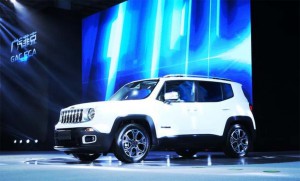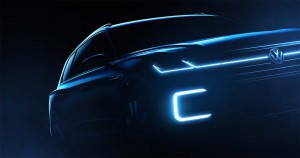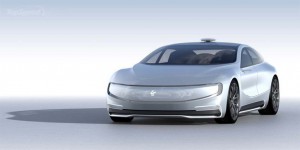It’s taken a little longer than in the U.S., but Chinese motorists are falling in love with the SUV – and that could be the salvation of a market suddenly in slowdown mode after more than 15 years of double-digit growth.
The Beijing Auto Show will serve as a showcase for an assortment of new vehicles this coming week, including a variety of sedans, coupes and minivans. But much of the attention is expected to be focused on the various SUVs – both in concept and production form – scheduled to debut there.
“The Chinese market is slowing down, with the exception of SUVs,” said Michael Dunne, a veteran Chinese industry analyst who now runs the strategic consulting firm Dunne Automotive.
They have gained a “cool factor,” he added, that led to a 52% in utility vehicle sales last year, with demand still growing by 40% in 2016. That’s all the more significant considering the overall Chinese market expanded at a much more modest 7.5% pace during the first quarter of this year. In fact, if it weren’t for SUV sales, demand would have been all but flat for the first time since the beginning of the Millennium, analysts contend.
The Beijing show will see dozens of new models unveiled, and the other hot market segment is the electric vehicle. LeEco, a start-up funded by tech industry billionaire Jia Yuetang, gave a hint of what it has in store on Thursday with a preview of the new LeSee. The battery sedan is expected to go up against the Tesla Model S. And since Jia is also the primary investor in California start-up Faraday Future, the LeSee may give a hint of what that American battery-car company plans to build.
But while there will be plenty of new battery vehicles at the Beijing Auto Show, that push is largely being driven by government fiat. Increasingly concerned about its massive urban pollution problem, the federal government is trying to force automakers to build more EVs. But consumers haven’t embraced the clean technology with nearly as much gusto.
BYD hopes to bridge the gap with the battery-electric SUV it plans to reveal at the auto show. And it’s not alone. Volkswagen earlier this week offered a tease of what it referred to as an “advanced luxury SUV” it plans to introduce in Beijing this coming week.
The prototype will use a plug-in hybrid powertrain promised to deliver 31 miles per charge and a combined 78 miles per gallon in the European fuel economy test. A production version is a strong possibility, observers believe.
(For more on the VW Beijing SUV Concept, Click Here.)
More traditional, gas-powered SUVs will be previewed by a wide range of international and Chinese domestic manufacturers, from General Motors to Great Wall. Nissan’s Infiniti will reveals its QX Sport Inspiration SUV Concept — widely seen as a preview of the new QX70 it will soon bring to market.
(Click Here for more on the Infiniti Inspiration Concept.)
The Beijing show “will highlight the growing tension between international and local brands as they fight to outshine each other with new products,” according to a report published by IHS Automotive analyst Namrita Chow.
One of the foreign manufacturers especially pleased by the shift in demand is Fiat Chrysler Automobiles. FCA’s Jeep brand was the first foreign maker to enter the Chinese market three decades ago. But the former Beijing Jeep operation was transferred to Daimler AG after the break-up of the ill-fated DaimlerChrysler merger.
After assuming control of the bankrupt American company the new Fiat Chrysler has been struggling to get back into the Chinese market, only launching its first joint venture late last year. This week, a second Jeep plant opened up in the province of Gunagzhou, and Beijing show-goers will get a chance to look at the first domestically produced Jeep Renegade when the auto show opens in a few days.
(For more on Jeep’s return to China, Click Here.)



